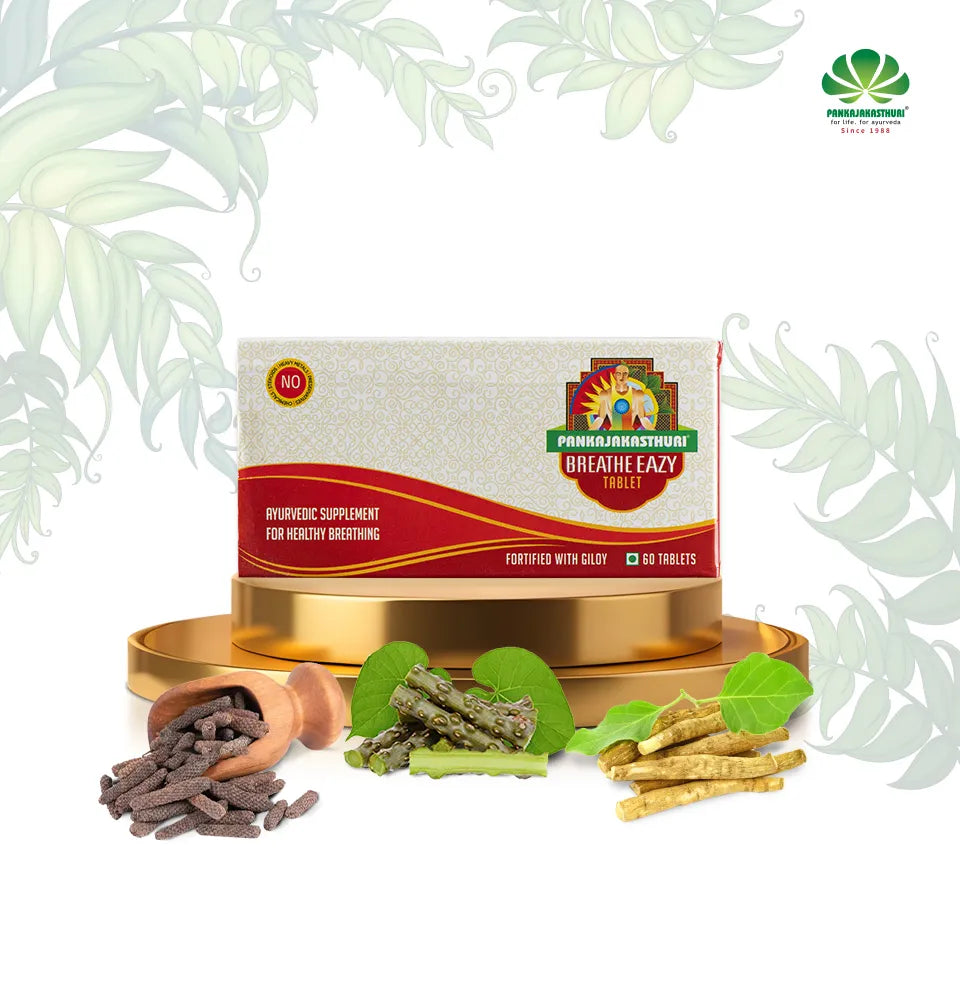
Irregular Periods – Causes, Symptoms, and Ayurvedic Management

Irregular Periods – Understanding the Basics
Irregular periods, medically referred to as oligomenorrhea (infrequent menstruation) or amenorrhea (absence of menstruation), are a common concern for many women. A typical menstrual cycle lasts between 21 and 35 days, with menstruation lasting 3–7 days. However, cycles can become irregular — shorter, longer, heavier, lighter or even missed altogether. In both modern medicine and Ayurveda, irregular periods are seen as a symptom of underlying imbalances — hormonal, lifestyle-related, or doshic (in Ayurvedic terms).
Causes of Irregular Periods
Irregular periods can result from various hormonal and lifestyle factors:
- Polycystic Ovary Syndrome (PCOS): Common in reproductive-age women, linked to anovulation and elevated androgen levels.
- Thyroid Disorders: Both hypothyroidism and hyperthyroidism can disrupt hormone balance and affect cycles.
- High Prolactin Levels: Suppress ovulation, leading to irregular or missed periods.
- Perimenopause: Hormonal fluctuations during the transition to menopause cause unpredictable cycles.
Lifestyle Factors Affecting Menstrual Regularity
- Stress: Emotional or physical stress disrupts the hypothalamic-pituitary-ovarian axis.
- Weight Changes: Sudden loss or gain alters hormone production and ovulation.
- Excessive Exercise: Intense physical training can suppress ovulation.
- Poor Nutrition: Diets low in essential nutrients or high in processed foods affect hormonal health.
Ayurvedic Perspective on Irregular Periods
In Ayurveda, irregular menstruation is primarily linked to imbalances in the three doshas — Vata, Pitta, and Kapha.
- Vata Imbalance: Delayed or missed periods, painful cramps, and dryness.
- Pitta Imbalance: Heavy bleeding, frequent periods, irritability, and heat in the body.
- Kapha Imbalance: Sluggish flow, excessive mucus, and weight gain.
Symptoms of Irregular Periods
- Unpredictable cycle lengths (outside 21–35 days)
- Missed periods (amenorrhea)
- Heavy or light bleeding
- Painful cramps (dysmenorrhea)
- Spotting between periods
- Acne, excessive hair growth, or weight gain (due to hormonal imbalance)
Ayurvedic Management of Irregular Periods
Ayurveda provides a holistic approach through diet (Ahara), lifestyle (Vihara), herbs (Chikitsa), and detoxification (Panchakarma).
1. Dietary Recommendations (Ahara)
- Vata Imbalance: Warm, moist, and grounding foods like soups, ghee, and cooked grains. Avoid cold, raw foods.
- Pitta Imbalance: Cooling foods like cucumbers, milk, melons, and leafy greens. Avoid spicy, oily, or acidic foods.
- Kapha Imbalance: Light, stimulating foods like legumes, green vegetables, and warming spices. Avoid dairy, fried foods, and sweets.
2. Herbal Remedies (Chikitsa)
Ayurvedic herbs help regulate hormones and support reproductive health:
- Ashoka: Regulates menstrual flow and uterine health.
- Shatavari: Balances hormones and strengthens the reproductive system.
- Lodhra: Effective for heavy or irregular periods.
- Turmeric: Reduces inflammation and Pitta-related symptoms.
- Amla: Supports detoxification and hormonal balance.
- Ginger: Enhances circulation and reduces cramps.
Pankajakasthuri Feminocare Capsules offer Ayurvedic support for managing amenorrhea (absence of menstruation). Formulated with Shatavari, Useera, Yashtimadhu, Ginger, and Amla, they help restore hormonal balance, nourish the endometrium, and improve uterine function. Regular use under medical supervision may help re-establish natural menstrual rhythm.
3. Lifestyle Changes (Vihara)
- Manage stress through yoga, pranayama, and meditation to balance Vata and reduce cortisol.
- Maintain consistent sleep of 7–9 hours per night for hormonal regulation.
- Engage in moderate exercise like walking, swimming, or restorative yoga.
4. Detoxification with Panchakarma
Panchakarma therapies help remove toxins, purify the reproductive system, and restore dosha balance.
5. Mindfulness & Mental Well-being
Practicing mindfulness, breathing exercises, guided meditation, and journaling reduces stress-related menstrual irregularities.
Conclusion
Irregular periods are common but manageable. Ayurveda emphasizes treating the root cause — balancing doshas, improving diet and lifestyle, and supporting reproductive health with herbs. If irregularity persists or is accompanied by symptoms like acne, weight gain, or amenorrhea for over two months, consult a doctor or Ayurvedic practitioner for personalized care.















